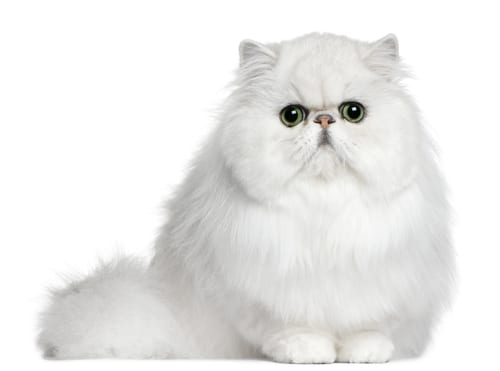This month we are going to take a peek into the Persian Cat. These fur babies are known for their sweet nature towards their family, and their reserved personality toward strangers. They love being doted on by gentle children or sitting in the lap of a family member. Persian cats are very mellow, and prefer to live in a home where things are quiet and little changes in the daily routine. They are not overly energetic animals, but enjoy a little exercise or playtime from time to time.
This beautiful medium-sized breed has been around for a long time and is believed to have originated in Mesopotamia (modern day Iran.) They were the first long-haired cat to come to Europe in the 17th century. Breeders molded the Persian to what we know as the Persian today, by cross breeding multiple types of long-haired breeds. Today we know this breed to come in many colors, have round heads, chubby cheeks, small ears, big eyes, and of course long hair.
Persians are healthy cats, but do run into health problems occasionally most often times related to their facial structure. These problems include difficulty breathing, heat sensitivity, dental issues, excessive tearing, kidney disease, and ringworm. This does not mean that every Persian faces these issues, but they can be common among this breed. In regards to caring for them, it is important that they are groomed every day – brushing and detangling. Bathing once a month is sufficient. The litter box must remain extremely clean because of the long-hair. If it is not clean, Persians are likely to just stop using it. This breed is an indoor only cat and would not do well in the dirt and leaves, or having to fend for themselves against dogs or other cats.
As always, keep an eye out for rescues that are currently caring for this breed. If you choose to go through a breeder, be sure to choose a caring, reputable one. Stay tuned for next month’s featured cat breed!


